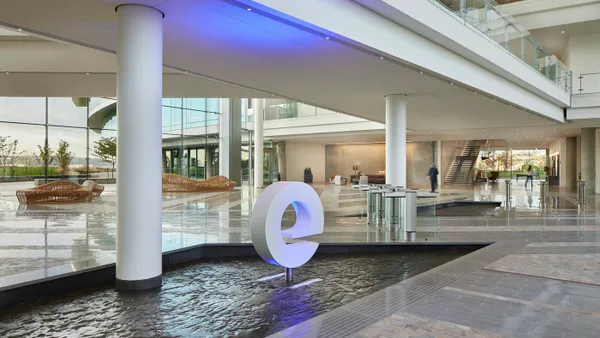Dive Brief:
- Nearly all workers using AI say the technology has enabled them to focus more on strategy, problem-solving and other higher-level responsibilities, according to a Workday survey published this month.
- More than 4 in 5 employees shared positive sentiments about AI’s impact on work and the economy, according to the survey of 2,500 full-time workers.
- The workers that use AI most frequently have the most positive view of the technology, while those still waiting to adopt it express the lowest optimism rates. Even so, 9 in 10 workers agree AI can improve transparency and accountability in organizations.
Dive Insight:
CIOs are keeping close track of workforce sentiment on AI since employee buy-in is critical to IT initiatives and adoption plans.
Enterprises have worked to build employee confidence in the tools through training and workshops. As familiarity with AI increases, workers have welcomed the technology’s ability to take over tedious tasks and busy work.
While AI adoption brings benefits, workers don’t want companies to forget the value of human connection.
“We're in the midst of a major shift in how we work and connect,” Kathy Pham, VP of AI at Workday, said in an email to CIO Dive. “While this shift presents exciting possibilities, it's understandable that some may feel apprehensive about AI’s impact on our roles and the future of work.”
Employees surveyed in Workday’s report identified ethical decision-making, relationship-building, empathy and conflict resolution as uniquely human processes and least likely to be replaced by AI. More than 4 in 5 workers said the need for human interaction will only intensify as AI usage grows, while less than two-thirds of managers agreed.
Consumer AI sentiment matters, too. Less than 30% of banking customers surveyed by J.D. Power would trust AI chatbots for financial advice, for example. Legal specialists predict unhappy consumers are likely to create the next wave of AI-related lawsuits.
“To make sure everyone feels empowered in this new world of work, let's invest in people and help develop the uniquely human skills that will be even more valuable in this era of AI,” Pham said. “This includes creating opportunities for learning, fostering a culture where tools can be used for discovery, and empowering conflict resolution and collaboration skills.”















